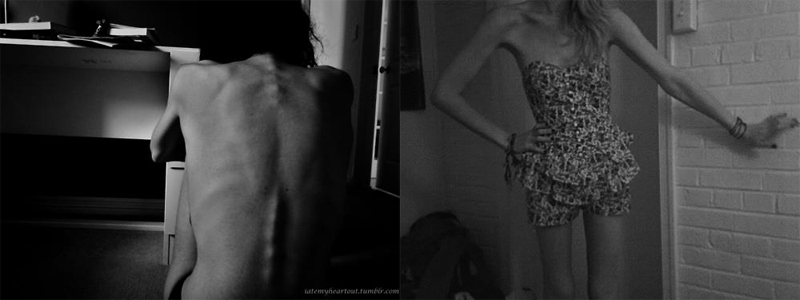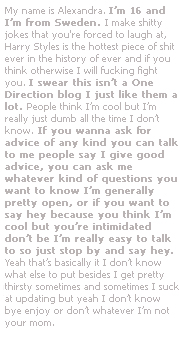Why skipping meals, fasting or restricting is a really bad idea:
date: 2013-04-03  time: 14:58:00
time: 14:58:00
 time: 14:58:00
time: 14:58:00 - It only takes 4 - 6 hours for your body to enter into starvation mode. In this mode your metabolism slows down making you less efficient at burning calories. Your body will protect the fat on your body in order to keep you warm and will instead start burning up your muscles for energy - including your heart.
- Your brain uses glucose it gets from food to work properly. You get fuzzy headed after not eating for a few hours because your brain can’t store the glucose and the glucose from your latest meal has been used up. You may notice you start getting shaky, tired, very hungry, unable to concentrate, a pounding heart, nausea, headaches and a whole host of other unpleasant symptoms. All of which are resolved by eating something.
- Your heart and kidney tissues alone need 200 calories a day for each pound they weigh (your heart weighs approximately half a pound, one kidney weighs around 0.37 pounds). Your brain requires around 109 calories per pound a day to function and your liver needs 91 per pound (your brain weighs around 3.8 lbs, your liver about the same). On top of this, your muscles need 6 calories per pound at rest - that’s without even getting out of bed. This means that your body needs on average 700 - 1000 calories per day JUST to keep you alive.
- Food is nutrition and your body needs a certain amount of nutrition to work properly. So not enough food = not enough nutrition. That means drying hair and skin, weakened nails, osteoporosis, constipation, insomnia, coldness, poor circulation, stopped periods. We make the mistake in today’s society of thinking food is bad. It’s not. We’ve forgotten in the mania to be thin that food is actually the thing which keeps us alive.
- One final point. Weight lost quickly will initially be water weight and the weight of the food in your body. That’s why people lose a lot of weight in the first week of a diet - it’s got nothing to do with losing fat. Weight lost quickly is weight gained back again quickly. Crash diets and fasts don’t work in the long run, it really is that simple.
How to help a friend with an eating disorder
date: 2012-11-19  time: 18:35:18
time: 18:35:18
 time: 18:35:18
time: 18:35:18 Helping a love one with an eating disorder
If you notice the warning signs of an eating disorder in a friend or family member, you may be hesitant to say anything out of fear that you're mistaken, or that you'll say the wrong thing, or you might alienate the person. Although it's undeniably difficult to bring up such a delicate subject, don't let these worries keep you from voicing valid concerns.
People with eating disorders are often afraid to ask for help. Some are struggling just as much as you are to find a way to start a conversation about their problem, while others have such low self-esteem they simply don't feel that they deserve any help. Eating disorders will only get worse without treatment, and the physical and emotional damage can be severe. The sooner you start to help a loved one, the better their chances of recovery.
Talking to a friend or family member about their eating disorder
When approaching a loved one about an eating disorder, it's important to communicate your concerns in a loving and non-confrontational way. Pick a time when you can speak to the person in private, then explain why you're concerned. Try to remain positive, calm, focused, and respectful during conversations.
Your loved one may deny having an eating disorder or may become angry and defensive. However, it's important you don't give up. It may take some time before your loved one is willing to open up and admit to having a problem. Still, as difficult as it is to know that someone you love has an eating disorder, you cannot force someone to change. Unless it’s a young child, the decision to seek recovery has to come from them. But you can help by making it clear that you’ll continue to be there for him or her, with your compassion and support, whenever they’re ready to tackle the problem.
How to talk to someone about their eating disorder
Be careful to avoid critical or accusatory statements, as this will only bring out your friend’s or family member’s defenses. Instead, focus on the specific behaviors that worry you.
- Focus on feelings and relationships, not on weight and food. Share your memories of specific times when you felt concerned about the person’s eating behavior. Explain that you think these things may indicate that there could be a problem that needs professional help.
- Tell them you are concerned about their health, but respect their privacy. Eating disorders are often a cry for help, and the individual will appreciate knowing that you are concerned.
- Do not comment on how they look. The person is already too aware of their body. Even if you are trying to compliment them, comments about weight or appearance only reinforce their obsession with body image and weight.
- Make sure you do not convey any fat prejudice, or reinforce their desire to be thin. If they say they feel fat or want to lose weight, don’t say “You’re not fat.” Instead, suggest they explore their fears about being fat, and what they think they can achieve by being thin.
- Avoid power struggles about eating. Do not demand that they change. Do not criticize their eating habits. People with eating disorders are trying to be in control. They don’t feel in control of their life. Trying to trick or force them to eat can make things worse.
- Avoid placing shame, blame, or guilt on the person regarding their actions or attitudes. Do not use accusatory “you” statements like, “You just need to eat.” Or, “You are acting irresponsibly.” Instead, use “I” statements. For example: “I’m concerned about you because you refuse to eat breakfast or lunch.” Or, “It makes me afraid to hear you vomiting.”
- Avoid giving simple solutions. For example, “If you’d just stop, then everything would be fine!”
Why starving seems to work
date: 2012-11-02  time: 11:02:57
time: 11:02:57
 time: 11:02:57
time: 11:02:57 It's hard to explain to someone who has nearly or fully starved themselves for a few days that what they're doing isn't effective. The proof is right there on the scale, right? Two pounds, five pounds, ten pounds flushed from their bodies like that, simply from not eating.
Wrong. Losing real weight from starving is physically impossible. Your body absolutely can not lose that much weight in a week. It's not because you weren't working hard enough, or didn't starve for long enough. It's because you can't do it, just like you can't grow gills and live underwater like a fish.
Here's what happens when your body is starved of nutrients:
Your body realizes that it needs energy to continue to function, to blink and breathe and scratch your forehead. All of this requires power source, and it has to get it from somewhere. When you don't give your body the energy it needs from food, it cannibalizes itself as an energy source. The prime directive of the body is that it must have energy at any cost.

The protein in your muscles is the only energy source a starving person has, and since you aren't eating, it's the only choice you are left with. Your body will begin to destroy muscle cells to release that protein so it can convert it into energy. Muscles are about 70% water, so when a muscle cell is destroyed, that water is released and eventually excreted. That's your weight loss.
Your body didn't convert any lumpy fat into lean muscle. It didn't begin to use fat as an energy source. It didn't just magically get rid of three or four pounds of pure fat. It's going to keep you alive at any cost, and that means burning up the muscle and using that to power you. Guess what? You've just increased your body fat percentage. Fat weighs less than muscle and takes up more space, so you might even look bigger than before.
You've also lowered your metabolism. Muscle is metabolically active tissue, so the more muscle you have, the higher your metabolic rate. The next bite of food you take, your body will use less efficiently and will hold on to much longer, converting it into fat and storing it for the long famine ahead.

Starving is not an effective weight loss tool. Not just because you shouldn't starve yourself, not just because of the incredibly dangerous effects it has on your brain, not just because it can ruin your body forever. It really doesn't work.
If you continue to starve yourself, your body will never get over that period of starvation. Your brain is programmed for survival, not for skinny, and you'll become permanently hardwired to think that there is never enough, that you are constantly starving, even when you're not.
Anorexia and Bulimia are extreme psychological diseases, and the above is your body's evolutionarily hardwired response to trying desperately to survive on so very little nutrients. It is not your fault. If you're struggling with starving, please consider getting help.








